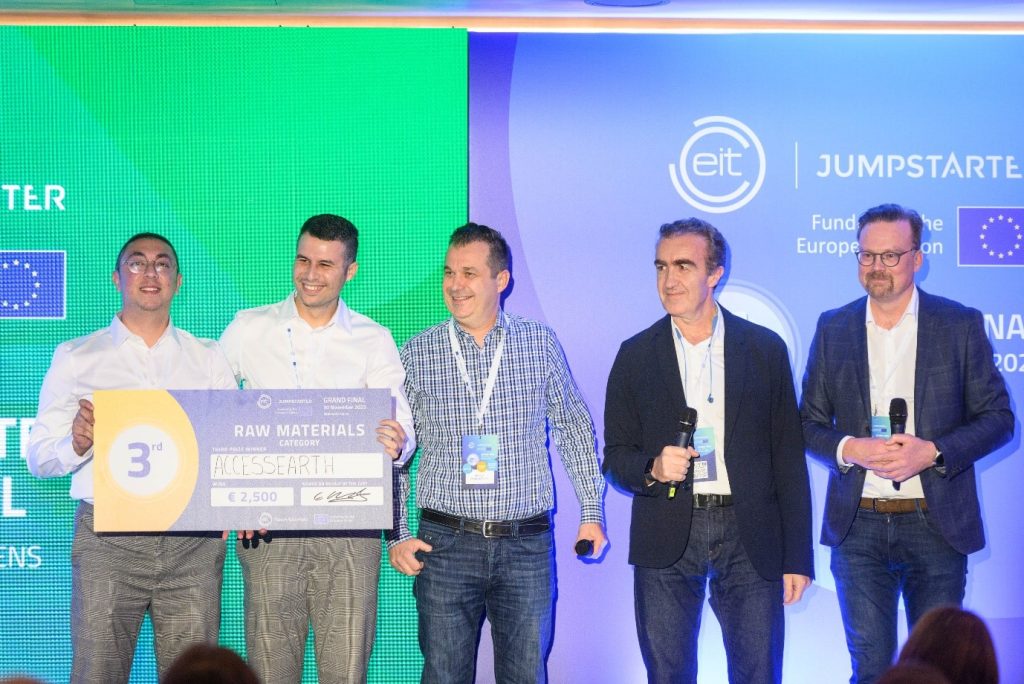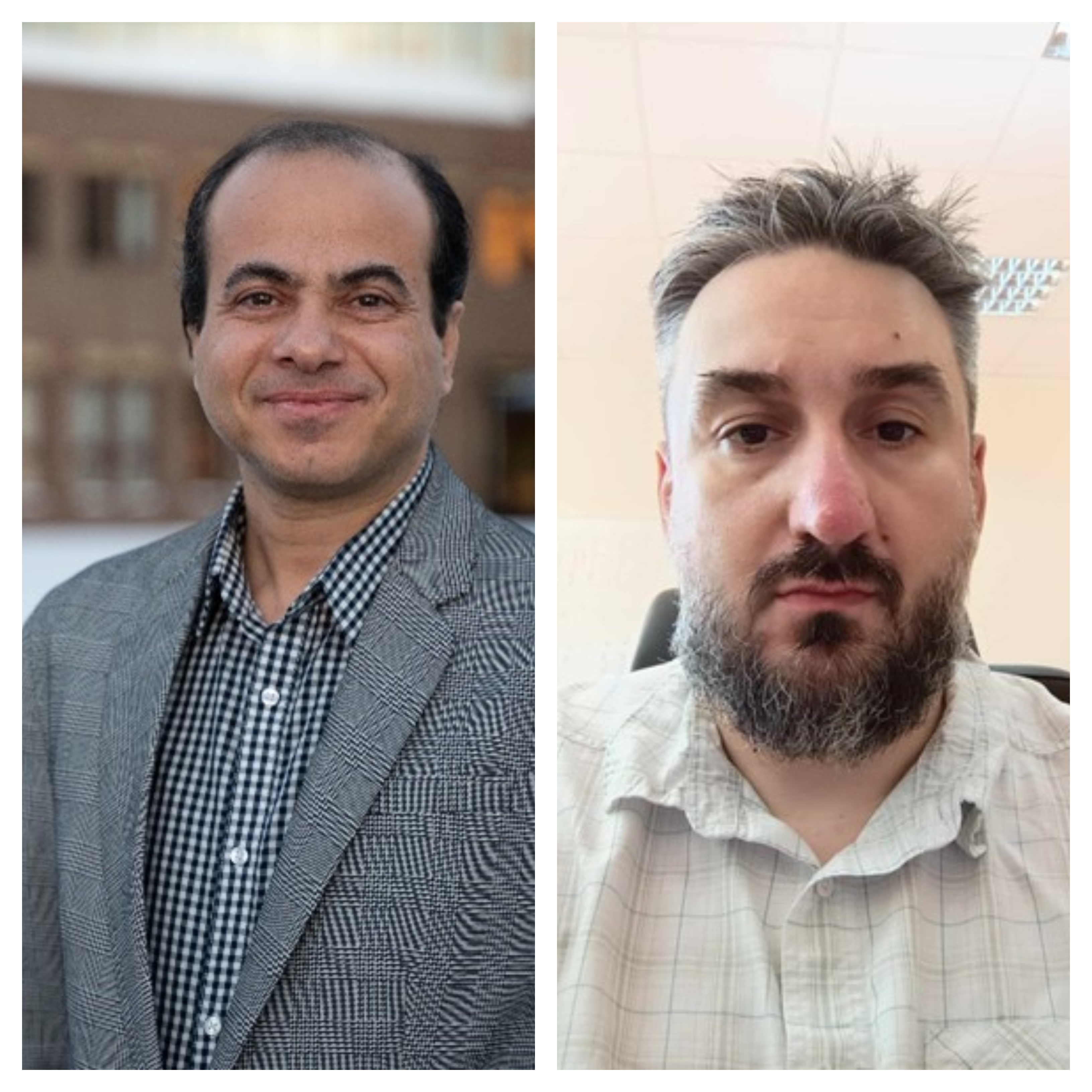CloudEARTHi and BOOSTalent: exploring the intersection of AI and sustainability
Interview with Dr Tamer Abu-Alam and Dr Angel Marinov
In an insightful discussion, we sat down with Dr Tamer Abu-Alam (left photo) and Dr Angel Marinov (right photo), leaders of the EIT HEI Initiative projects CloudEARTHi and BOOSTalent. Learn more about their work on driving artificial intelligence (AI) and machine learning innovation with a strong emphasis on sustainability and diversity.
Could you please introduce yourselves briefly and explain your involvement in the EIT HEI Initiative?
Dr Abu-Alam: CloudEARTHi, established in 2021 as part of the first cohort of the EIT HEI Initiative, focuses on driving innovation in AI and machine learning with a strong emphasis on sustainability, the circular economy, and social diversity. Thanks to support from the EIT HEI Initiative team and the project officer, we’ve secured additional funding from the EU Horizon and Erasmus+ programmes, expanding our reach to 23 institutes across 11 European countries.
Dr Marinov: BOOSTalent, one of our four EU projects, received funding from the EIT HEI Initiative under Cohort 3, with a goal to enhance AI and machine learning applications in sustainability, electronics, advanced materials, and aerospace.
In your roles, how do you ensure that CloudEARTHi’s educational and research activities contribute to addressing societal challenges?
Dr Abu-Alam: As an assistant professor of sustainability analytics at UiT The Arctic University of Norway, I am dedicated to merging sustainability principles with technological innovation and educational practices. Dr Marinov, serving as an Associate Professor of General Engineering and Electronics at the Technical University of Varna, leverages his engineering and technological expertise to drive our goals forward. Alongside our diverse team, we strive to transform higher education institutions into catalysts for societal change, positioning CloudEARTHi as a pivotal player in the European innovation ecosystem.
Could you start by telling us about the BOOSTalent project, its goals, and main achievements so far?
Dr Marinov: The BOOSTalent project aims to enhance AI and machine learning applications across vital sectors such as sustainability, electronics, advanced materials, and aerospace. To date, we’ve successfully trained and mentored over 450 students, academics, and professionals and accelerated two start-ups. Notably, we supported the development of AccessEARTH, an AI application for mineral resource exploration, created by a talented student team.
Tell us about the start-up you supported – what kind of support did you offer them?
Dr Abu-Alam: AccessEARTH leverages AI and machine learning to analyse satellite, geophysical, and geochemical data for mineral resource exploration, aligning with EIT RawMaterials’ strategic objectives. Our support included mentorship, technical assistance, and facilitation of their participation in competitions like EIT Jumpstarter, contributing to their success and growth.
Why did the start-up participate in the EIT Jumpstarter competition, and how did they hear about it?
Dr Marinov: AccessEARTH aimed to showcase their innovation and gain validation and feedback from experts, learning about the competition through our encouragement and networks, seeing it as an important step towards market entry.
The start-up won third prize in the Raw Materials category at the EIT Jumpstarter. Has this changed anything for them?
Dr Abu-Alam: Winning third prize elevated AccessEARTH’s visibility, attracting interest from potential partners. For instance, BGR – The German Federal Institute for Geosciences and Natural Resources, approached them for a pilot study on critical raw materials in Hungary.

What’s next for BOOSTalent?
Dr Marinov: We’ll continue identifying and nurturing innovative projects and teams, broadening support frameworks and strengthening collaborations with industry and higher education institution partners. Establishing innovation hubs and labs and a joint technology transfer office (TTO) are part of our strategy, with plans for more TTOs and an innovation centre by 2024.
Why should students consider joining the next Jumpstarter competition?
Dr Abu-Alam: Participating offers validation, exposure, and access to experts and investors, potentially steering start-ups towards success. EIT Jumpstarter’s support extends beyond funding. It provides invaluable networking and other opportunities for participants.
Share your experience with the EIT HEI Initiative and inspire higher education institutions across Europe to boost their innovation and entrepreneurship capacity.
Published on: 08 May 2024
